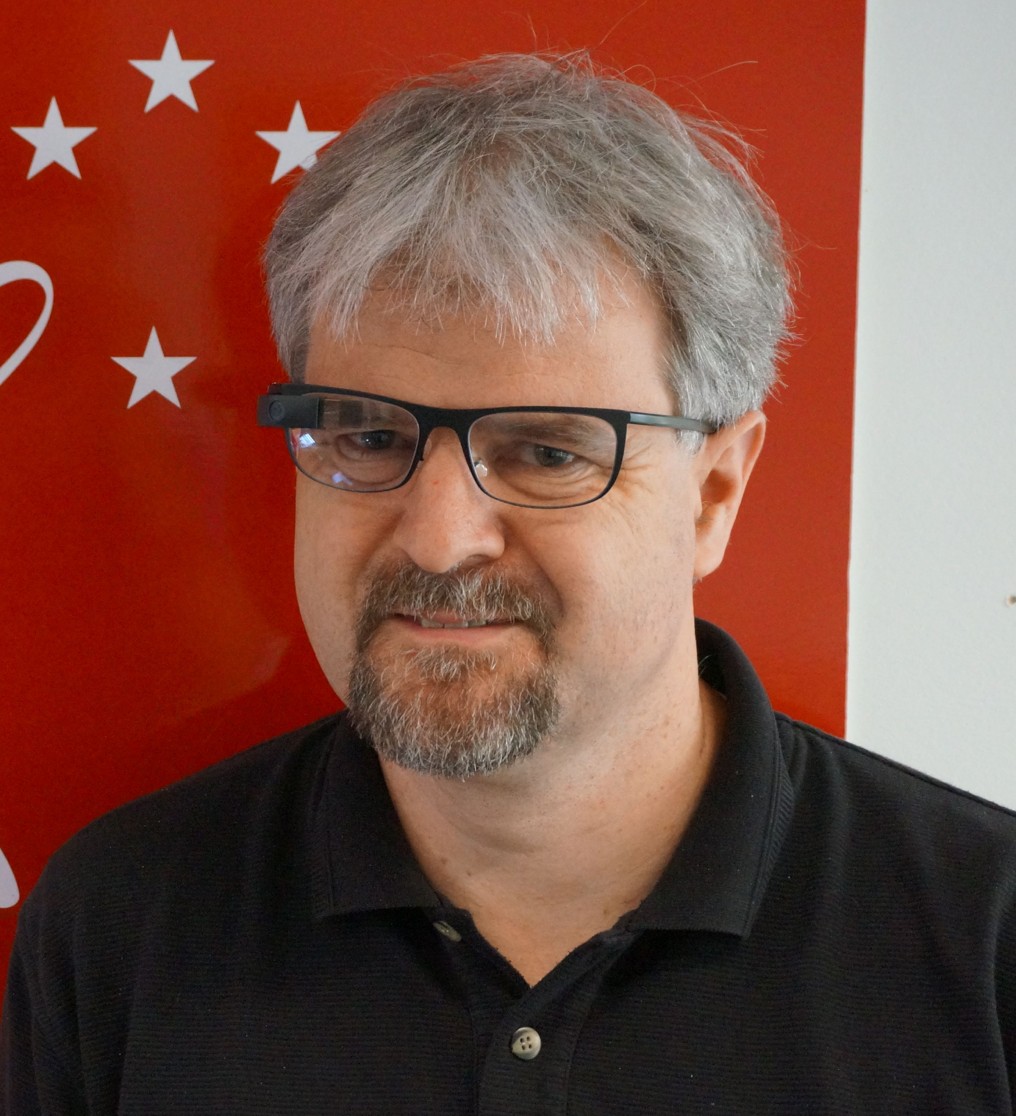Teil des Programms der “Mensch und Computer″ sind drei eingeladene Vorträge (Keynotes), in denen bekannte oder interessante Persönlichkeiten ihre Arbeit und Erkenntnisse präsentieren. Damit stimmen sie auf die Kernthemen der Konferenz ein und bieten Grundlage für weitergehende Diskussionen. In diesem Jahr werden die folgenden spannenden Vorträge stattfinden:
Opening Keynote
Montag, 9. September, 9:00 - 10:00 Uhr
Discreet Computing
Computing and interaction are changing the nature of humanity. As individuals our capabilities can be extended, our memories augmented and our senses attuned. Societies are being reshaped by our ability to interconnect and harness the abilities of millions. Interaction is all around us and this talk offers a new vision of computing called Discreet Computing.
Discreet Computing is intentionally unobtrusive through its design, development and use. Aspects of wearable, invisible, ambient and ubiquitous computing are key as discreet computing is woven into the literal or figurative fabric of day to day life. This talk provides a view of eight dimensions of discreet computing along with real research examples.
Today, the nature of mobile technology gives rise to people seeking to hide it, make it invisible, camouflage it or demonstrate polite and discreet use (e.g. placing it face down when with others). However, commodity devices aren't well equipped to support such use as they require obvious interaction with touch, movement or speech. Haptic and audio signals may provide subtle outputs but inputs aren't so subtle. SpeCam supports discreet micro-interactions to avoid the many micro-distractions we face with today's mobile devices. This leverages a natural use of mobile devices today, namely when they are placed face down on flat surfaces. People may place their phones face-down on a surface to signal their intent to engage socially with those around them, by limiting their access to distractions, external entertainment and self-gratification. Others will keep such devices fully hidden from view in a bag or pocket. Here the material sensing technique uses only the front facing camera and display as a multi-spectral light source. Studies show that it can recognise colours at 10 degree aparts in the HSB space, and 30 types of surface materials with 99% accuracy.
Or we might consider Discreet Gesture Interaction using EOG Sensors in Smart Eyewear. This sensing technique can detect finger movements on the nose, using EOG sensors embedded in the frame of a pair of eyeglasses. Eyeglass wearers can use their fingers to exert different types of movement on the nose, such as flicking, pushing or rubbing. These subtle gestures can be used to control a wearable computer without calling attention to the user in public.
This talk considers the question of what is “discreet computing” and what research and development challenges are there in context-awareness which will allow us to afford subtle, discreet, unobtrusive and seamless interactions.
Biographie / Speaker Biography

Professor Aaron Quigley
Chair of Human Computer Interaction
School of Computer Science
University of St Andrews
Professor Aaron Quigley is the Chair of Human Computer Interaction and Director of Impact in the school of Computer Science in the University of St Andrews in Scotland. His research interests include discreet computing, novel and on-body interaction, global HCI, pervasive and ubiquitous computing and information visualisation on which he has delivered over 50 invited talks and is a keynote speaker at the IEEE VISSOFT 2018 conference and Mensch-und-Computer conference in 2019.
Aaron is the ACM SIGCHI Vice President of Conferences and serves on the SIGCHI executive committee, chairs the council of steering committee chairs and conferences board. In 2016 the ACM president asked him and Matthias Kaiserswerth to consider how ACM might better engage young computing professionals. Based on their recommendations, the ACM Council established the Future of Computing Academy for which Aaron served as a convenor for it’s inaugural intake. In addition Aaron is a board member of ScotlandIS and member of the MobileHCI steering committee. Aaron has served as papers and program chair for the ACM IUI, ACM PerDis and /LoCA conferences. In addition he has been the general or conference chair for the ACM UIST, ACM ITS, ACM MobileHCI and Pervasive conferences.
His research and development has been supported by the EPSRC, AHRC, JISC, SFC, NDRC, EU FP7/FP6, SFI, Smart Internet CRC, NICTA, Wacom, IBM, Intel, Microsoft and MERL. He has published over 170 internationally peer-reviewed publications including edited volumes, journal papers, book chapters, conference and workshop papers and holds 3 patents.
Aaron studied in Ireland and Australia and has previously held appointments in Tokyo Institute of Technology as a visiting Professor, in Australia at the inaugural director of the Human Interface Technology Laboratory, Australia (HIT Lab AU), in Ireland as a College Lecturer, with IBM in their Centre for Advanced Studies in Dublin, with MERL as visiting scientist, in Australia as a Senior Research Fellow in the University of Sydney and as an Associate Lecturer in the University of Newcastle.
Kontakt / Contact
Professor Aaron Quigley
School of Computer Science
University of St Andrews
Fife KY16 9SX
Scotland, UK
E-mail: aquigley@st-andrews.ac.uk
Web: https://aquigley.host.cs.st-andrews.ac.uk/
UPA Keynote
Dienstag, 10. September, 9:00 - 10:30 Uhr
Conversation: The oldest new interface
Conversation is the oldest, the most central, form of human communication. Almost all people grow up using language all day, every day. So why is it so hard to design well for conversations with computers? What have we been missing? And as we build more complex conversational systems, what new goals can we set for ourselves about the capabilities of voice interaction design? First, I’ll address how to understand and construct real conversations with digital agents. Then I’ll discuss what it means to go from performing transactions to becoming truly assistive, and explore how we can create new digital relationships between people and computers.
Biographie / Speaker Biography

Margaret Urban
Senior Interaction Designer
Google, Mountain View, CA
Margaret Urban is a Staff Interaction Designer on the Conversation Design team at Google. Fascinated by how people communicate using language, she started as an editor and tech writer, and then dove into Linguistics in graduate school. She entered the world of speech recognition in 2000, and has been designing and teaching about Voice User Interfaces ever since. Margaret has presented at academic and industry conferences including CHI and SXSW. At Google she works on the front line of Conversation Design, integrating linguistic principles, research, and data into conversations with the Google Assistant. And, she still thinks language is magic.
Kontakt / Contact
Margaret Urban
Senior Interaction Designer
Google, Mountain View, CA
Closing Keynote
Mittwoch, 11. September, 11:00 - 12:00 Uhr
Augmented Reality; The Next Twenty Years
The first Augmented Reality (AR) systems were developed 50 years ago, but it is only in the last 10 years that AR has become widely available for consumers. Since that time AR technology has rapidly advanced with large companies such as Microsoft, Intel, Sony, Google, Apple and Samsung all making significant investments in the field. However the current state of the art is still far from the visions of the first AR researchers. This presentation discusses trends in AR that will have a significant effect in the next twenty years, and how the pace of innovation will continue to accelerate, creating even better AR experiences in the future.
Biographie / Speaker Biography

Professor Mark Billinghurst
Professor of Human Computer Interaction
University of South Australia
He has received many awards including the 2013 IEEE VR Technical Achievement Award for contributions to research and commercialization in Augmented Reality, and in 2012 the 10 Year Lasting Impact Award for the most influential paper published at the ISMAR conference in the previous 10 years. In 2013 he was elected as a Fellow of the Royal Society of New Zealand.
Mark has been a member of the ACM for over 15 years and has been involved in a number of roles, including Program Chair for the ACM IUI 2018 conference, MGIA chair at Siggraph Asia (2013-2015, 2017), Emerging Technologies Chair Siggraph Asia (2010, 2011), and on many review and program committees. He is also a Senior Member of the IEEE, and has heavy involvement in organising the IEEE ISMAR conference, including being the previous conference chair in 2004, and 2013, and the current Steering Committee Chair.
Kontakt / Contact
Professor Mark Billinghurst
School of Information Technology and Mathematical Sciences
Mawson Lakes Campus (W1-03)
University of South Australia
Australia
E-mail: Mark.Billinghurst@unisa.edu.au
Web: https://people.unisa.edu.au/Mark.Billinghurst
